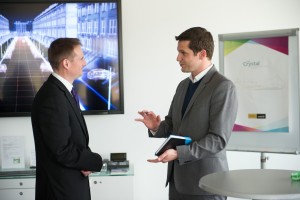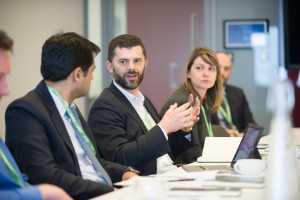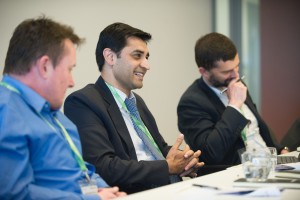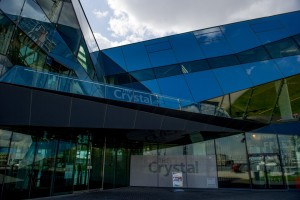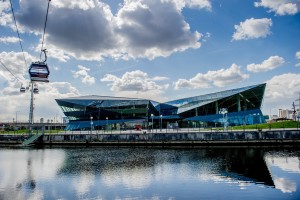NISSAN today announced the launch of a brand new expert Advisory Board focused on furthering the Intelligent Mobility debate beyond the automotive community in Europe.
Convened for the very first time at the Crystal in London, one of the world’s most sustainable buildings, the Intelligent Motoring Advisory Board brings together a cross-section of industry leaders to tackle one of the fundamental issues of our age – the future of mobility and ‘smarter,’ cleaner living.
Led by the Head of Electric Vehicles for Nissan in Europe, Gareth Dunsmore, the Advisory Board will be independently chaired by eminent technology and science commentator Stephen Pritchard. Made up of 12 members from across Europe, representing a range of companies and organisations including the European Climate Foundation, Frost & Sullivan and Ecotricity, the Advisory Board will convene twice a year as part of an ongoing partnership and programme of activity.
Commenting on the launch of the board, Nissan’s Gareth Dunsmore said: “At Nissan, we’re not content sitting back and watching as our cities become more complex, crowded and congested. Selling cars is no longer a moment-in-time transaction. Cars have a fundamental impact on the cities we live in and the lives we lead. With the advent of new technologies and drivetrain innovations, new mobility solutions can make our lives ‘smarter’ and better connected. This is why we’re thrilled to launch the Nissan Intelligent Motoring Advisory Board; we hope others in the industry will join us on this journey.”
The inaugural meeting, which took place on 27 April 2016, focused on the topic of smart motoring and the connected city conundrum. Though convened by Nissan, the Advisory Board remains an independent group of experts. Its primary aim is to provide an open space for leaders in their field to share ideas in search of mobility solutions which could change the way we live. This may be electric vehicles today but the group will also explore future possibilities.
Nissan remains a market leader in providing mass market electric vehicle (EV) solutions with its Nissan LEAF and e-NV200 van. Sales of Nissan’s EVs are now in excess of 220,000 globally with the Nissan LEAF 30kWh now providing customers with an extended driving range of up to 155 miles on one charge. The company is also working with energy companies and power management firms to explore next generation battery technology, giving EV owners access to smarter, cleaner energy management systems, which can also save them money.
Gareth Dunsmore added: “Our desire for increased mobility is greater than ever before, putting a huge strain on the cities and roads of tomorrow. At Nissan, we recognised this five years ago when we launched our 100 percent electric Nissan LEAF. Zero emission motoring is no pipedream. It’s a very real motoring solution to a very real problem.
“As our electric vehicle technology evolves, consumers will also expect more connectivity, greater range and more efficiency than ever before. We have to keep pace with this change. And that will require new thinking. We hope our Advisory Board will set us on course as we go about this business transformation.”
Sarwant Singh, Senior Partner at Frost and Sullivan and mega trends expert said: “Mobility is undergoing a huge transformation with the advent of digitisation, urbanisation and a marked behavioural change in millennials. It is therefore heartening to see that industry-leading players like Nissan are bringing thought leaders together to shape the future of mobility.”
Pete Harrison, Director, European Climate Foundation commented: “The Paris Agreement shows that there is a global will to tackle the threat of climate change but we cannot continue moving at the same steady pace. New, electrified and connected mobility concepts have the potential to get the sector back on track by transitioning to a new low-carbon mobility paradigm. This will deliver multiple co-benefits: better air quality; less noise pollution; energy security and improved economic resilience.”
Jorn Madslien, Editor-at-large, Green.TV said: “Modern cars are technological marvels and the automotive industry is one of the most hi-tech industries in the world, so its ability to come up with workable solutions to some of the world’s most profound challenges needs to be appreciated by both policy makers and by society at large. The industry has made it clear that is ready to do its bit and work together with other sectors, with governments and with non-governmental organisations to make real change.”
The next Board meeting is scheduled to take place in October 2016.



